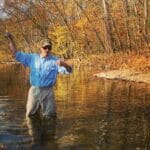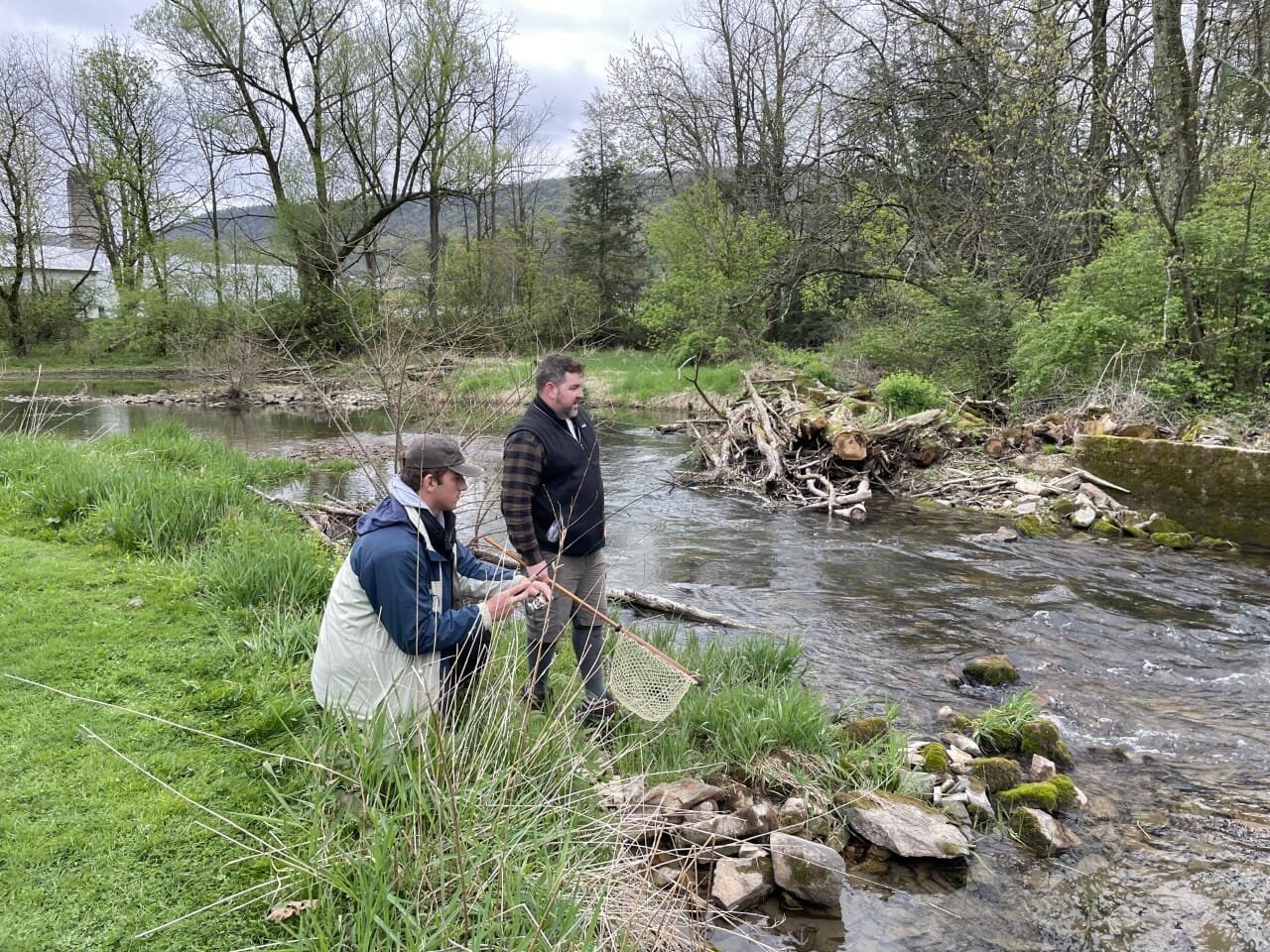A son catches his first trout on a fly rod, and a father fears losing the family fishing crown
My dad, who went to Georgetown on a basketball scholarship, bet my three brothers and I that none of us would be able to beat him one-on-one before we were 16. I beat him at 15.
Many years later, my son Wylie, at 19, says he is a better driver than I. Henry Trace, 13, claims he can beat me one-on-one in hoops.
Such is the way of the world. Fathers yield to sons; mothers to daughters, and the beat goes on.
When it comes to hoops with Henry Trace, he will need to actually score more points than me before I admit defeat, but that day is coming fast. After a weekend of fishing with my son Casey, 16, and Rick Nyles and his incredible operation at Sky Blue Outfitters, it is only a matter of time before I cede the family fishing crown to Casey.
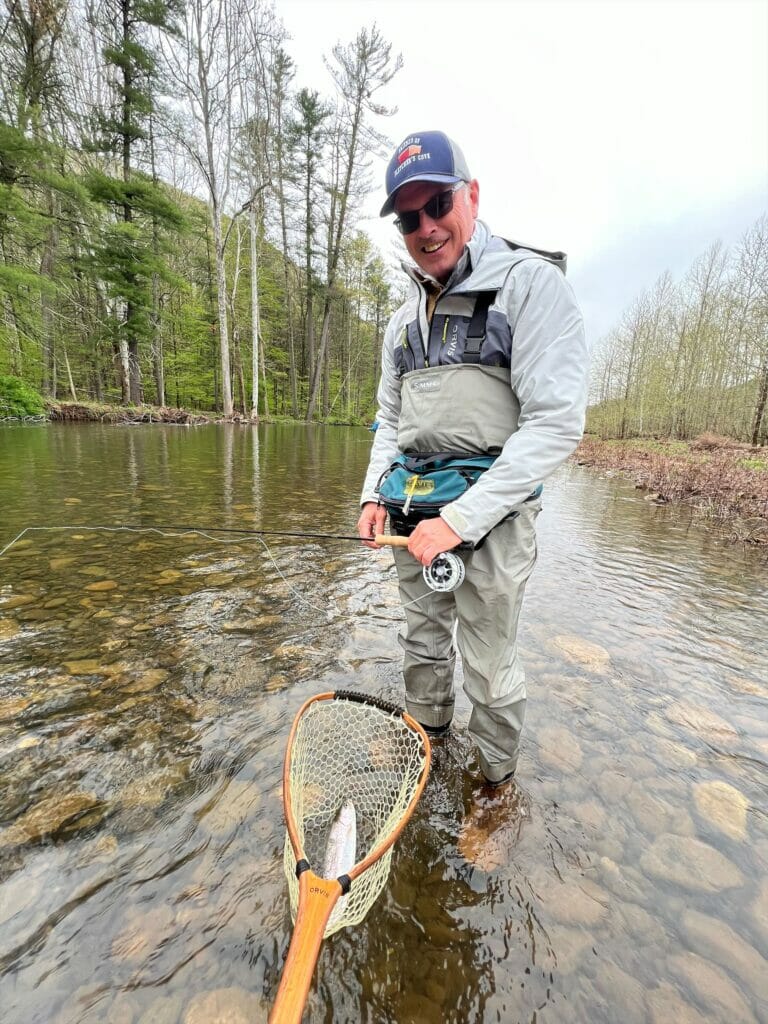
Every year, Rick holds an auction benefiting our chapters in Pennsylvania for the chance to fish with me for a weekend. (When I mentioned this to a friend, he wryly asked, “What does the second-place winner get?”) This year, Rick invited me to bring one of my kids.
All my sons have fished since they were young children on our home water, the Potomac River. We generally spin fish. Casey attended the Trout Unlimited Tri-State youth camp a few years back, so he already knew how to cast a fly rod, but this weekend, he caught his first trout on the fly—a native brookie in Pennsylvania.
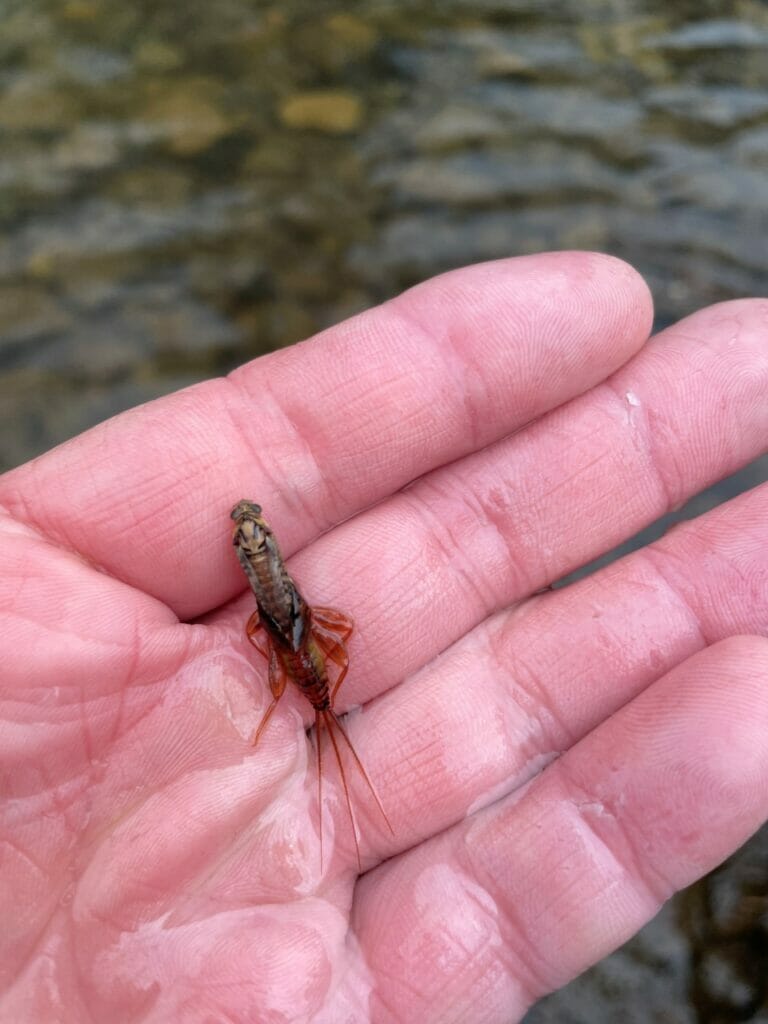
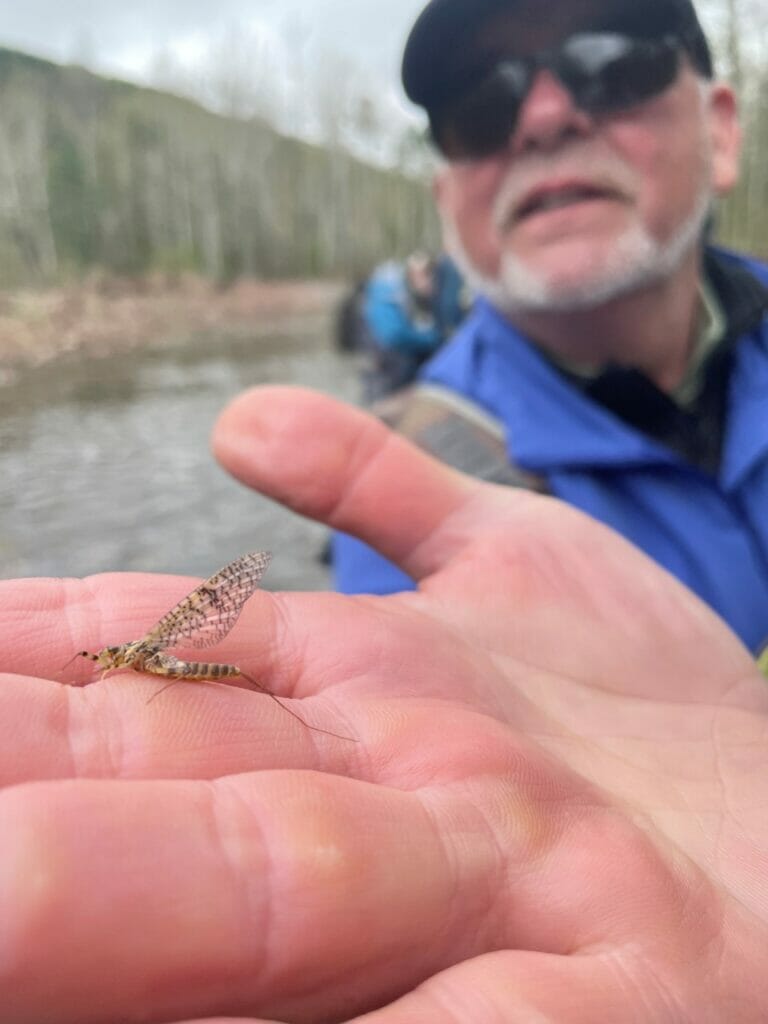
He then proceeded to master the March Brown hatch and catch six more trout in short order, despite having his, uh, “vintage” wading boots blow out early in the morning. Casey (and I) benefited immensely from the presence and instruction of Dave Rothrock. Dave is a leader in the Pennsylvania Council of TU, pens the Ranting Angler blog, and has fished all over the world. He may also be the best casting instructor I’ve ever met.
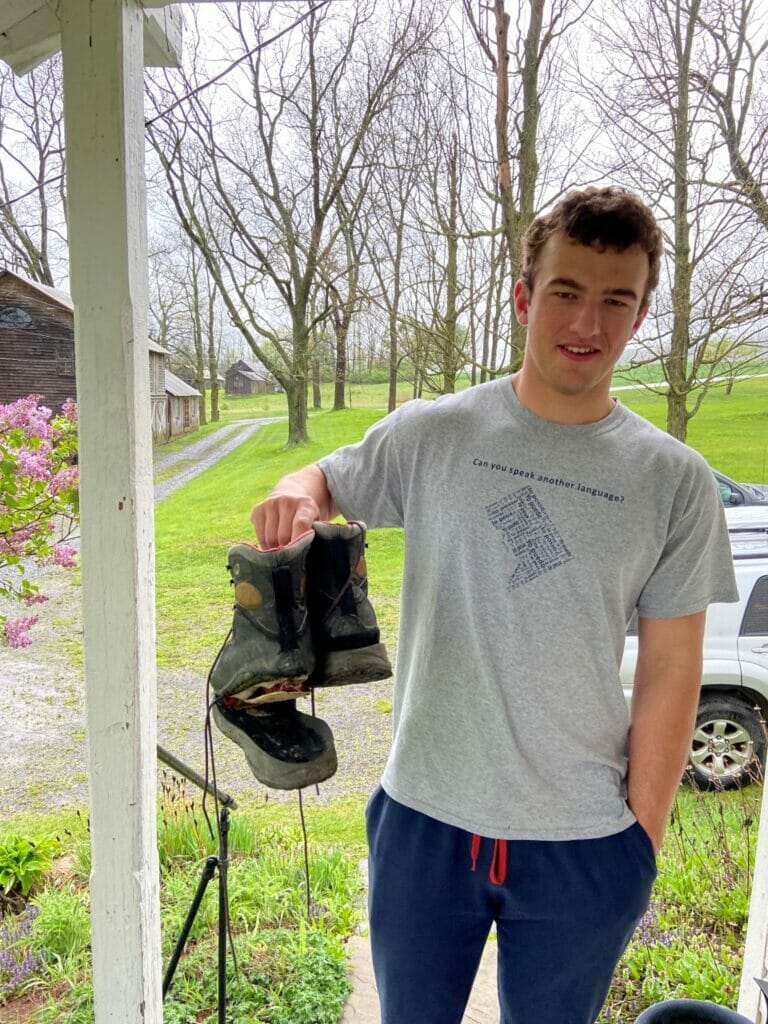
Casey is a big, strong kid and was throwing tailing loops. Dave said, “If you are casting a dry fly and hear a “whoosh,” you are overpowering the cast. A tailing loop is nothing more than an undue application of power.” Dave then proceeded to cast his entire line and although there was a whoosh or two toward the end of the spool, somehow made it look remarkably graceful. Dave worked with Casey and me on aerial mends, curve casts, pile casts, inverted curve casts and reach casts with a shooting line for mend-free drifts.
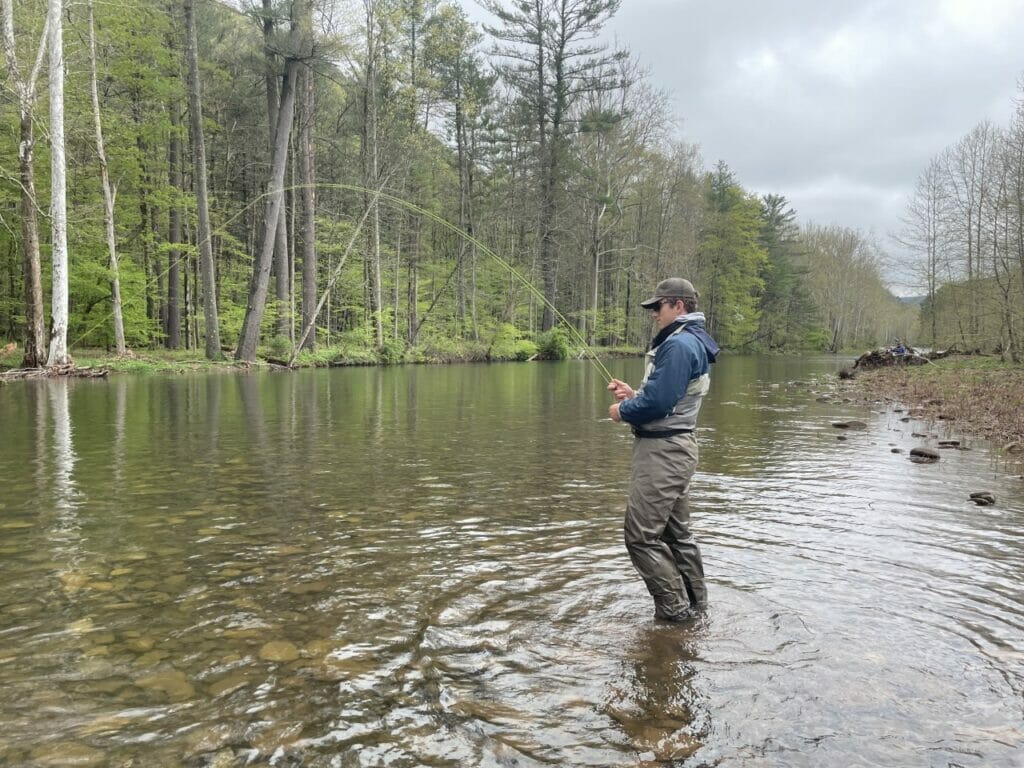
It was a lot to take in, but Dave explained and demonstrated each cast. It was the best casting instruction I have ever received. When we returned to the farm where Rick maintains his base of operations, Casey went out with Derek Eberly, one of Rick’s guides and the director of the Governor’s Advisory Council for Hunting, Fishing & Conservation for the commonwealth of Pennsylvania. He was slated on Sunday to assist a habitat project tour with a group of high-school kids from the Governor’s Youth Council, but he hung around long enough on Saturday evening to take Casey and I down to Fishing Creek with a pair of spinning rods.
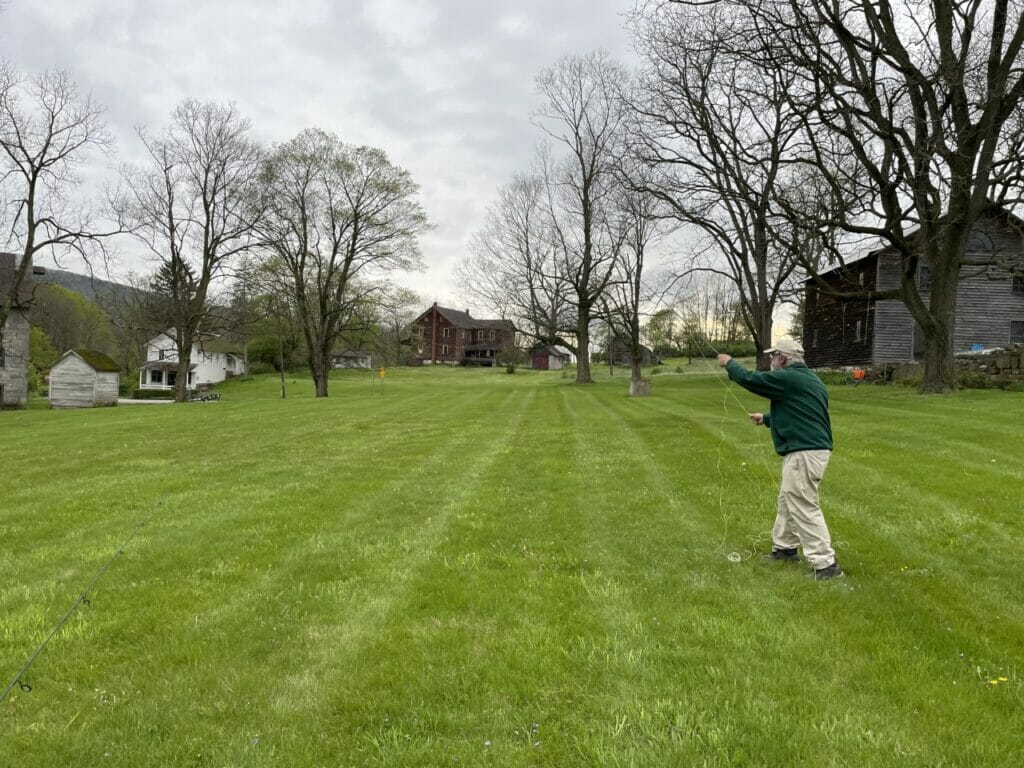
I never got a bump, but Casey brought in a nice wild brown trout under Derek’s excellent tutelage. I fished with Derek last year and recall him complimenting my distance casting; generous words from a guy who has won a PA fly casting competition in the amateur, and then the next year, the expert division.
As is often the case, some of the most fun on the trip was spent talking over and after dinner. Len Lichvar, the volunteer TU state council president in Pennsylvania, regaled us with the story of SCRIP, short for the Stonycreek-Conemaugh River Improvement Project. Lenny is also a chapter leader for the Mountain Laurel Chapter of TU.
Stonycreek and the Little Conemaugh flow from some of the highest-elevation areas in the state into the Kiskiminetas which then flows into the Allegheny. Like so many places in Appalachia, 150 years of coal mining caused massive acid mine drainage problems for the area.
Working with state, local, and federal partners, the Mountain Laurel chapter has recovered over 20 miles of cold water habitat through passive mine treatment projects.
Lenny told us, “When I grew up, you had to leave the area to recreate. People looked at rivers as places to throw their trash so it would be carried away. People in the community told us we were foolish to want to clean up these rivers. ‘It will always be this way. You’re wasting your time.’ Over time, we helped to change the mindset of the local community about their rivers and streams. Today, those same people who criticized us are catching trout with their grandkids right behind their homes.”
If we are lucky, our children will ultimately become better athletes, anglers and citizens than we. It gives me great comfort to know that people such as Rick, Lenny, Derek, and Dave are helping kids such as Casey, and even more comfort to know that TU chapters all over the country are leaving a healthier land and water legacy for him and his brothers to enjoy.


